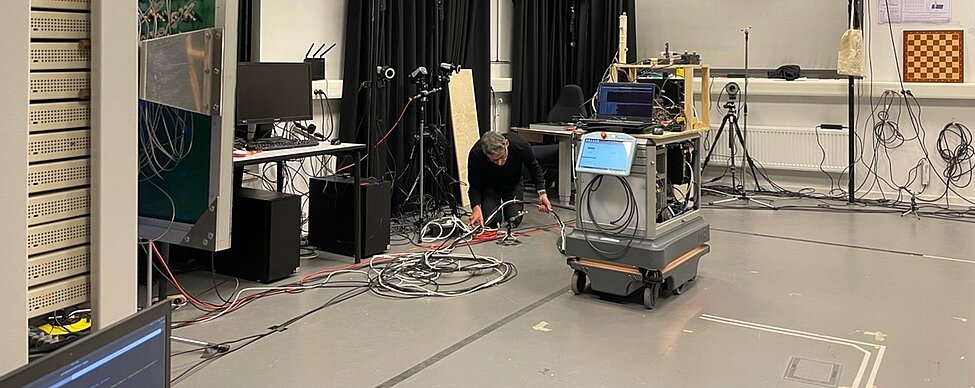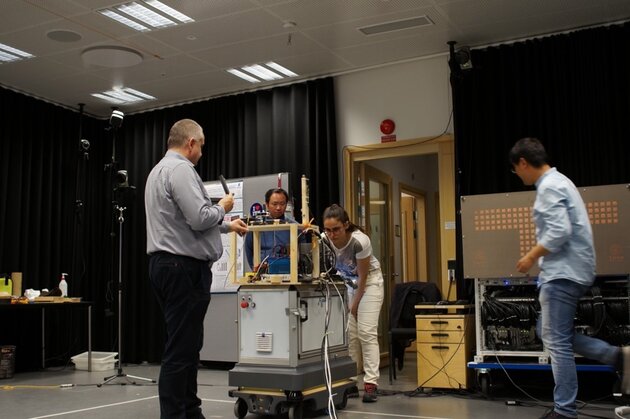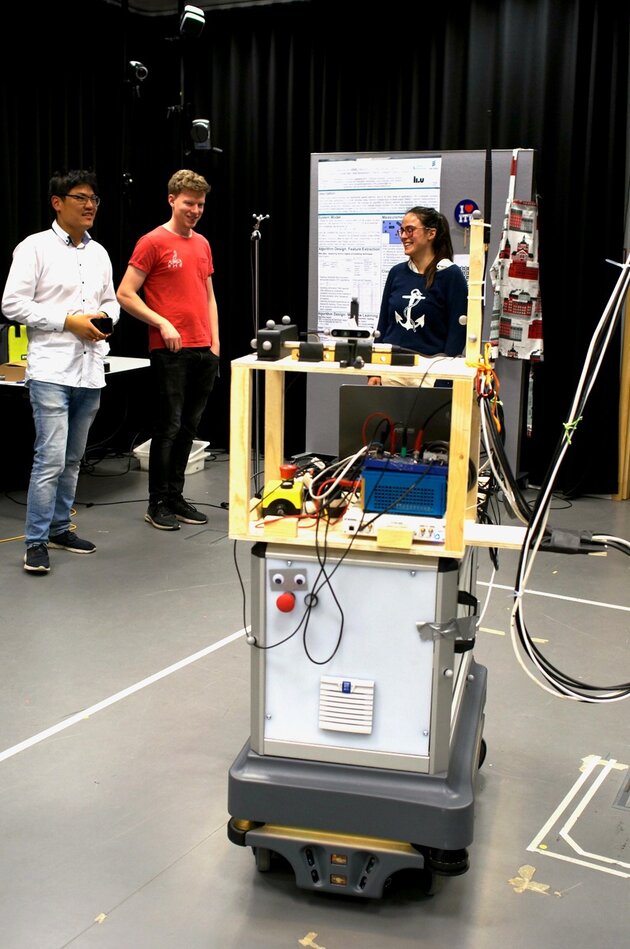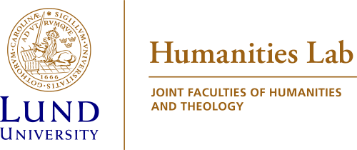Lab project quick look: Creating datasets for developing positioning algorithms in the Mocap studio

Since its full reopening, the Humanities Lab is once again brewing with activity. In hoping to inspire new and old users alike, and to illustrate the Lab's diverse range of usage, we'll occasionally be highlighting exciting current projects in our facilities - starting off with a visit from the Faculty of Engineering.
Between May 5 and 9, researchers from the departments of Electrical and Information Technology (EIT), Computer Science and Automatic Control and Centre for Mathematical Sciences in Lund University conducted an extensive measurement campaign in Lund University Humanities Lab's motion capture studio.
The measurement campaign was carried out to create a dataset that combines different sensors in the given environment to accurately position devices (~cm) in real-time. A robot was equipped with a camera, a speaker, and a radio user equipment (which can transmit and receive signals from the EIT department's own massive MIMO base station, LuMaMi) and programmed to move in different trajectories.
The dataset will be used to develop hardware friendly positioning algorithms that fuses the information from vision, audio, and wireless sensors. The motion capture system is used to track the robot and the equipment on top, which will be used to verify the results obtained by the new positioning algorithms.
Overall, the dataset will contribute to in depth understanding and further development of AI/Machine learning and 6G applications.
Contributors: Ilayda Yaman (Department of Electrical Engineering and Information Technology), Guoda Tian (Department of Electrical Engineering and Information Technology), Henrik Garde (Humanities Lab), Martin Larsson (Centre for Mathematical Sciences), Patrik Persson (Department of Computer Science), Michiel Sandra (Department of Electrical Engineering and Information Technology), Alexander Dürr (Department of Computer Science), Erik Tegler (Centre for Mathematical Sciences), Nikhil Challa, Sirvan Abdollah Poor (Department of Electrical Engineering and Information Technology), Steffen Malkowsky (Department of Electrical Engineering and Information Technology), Ove Edfors (Department of Electrical Engineering and Information Technology), Karl Åström (Centre for Mathematical Sciences), Fredrik Tufvesson (Department of Electrical Engineering and Information Technology), Volker Kruger (Department of Computer Science), Anders Robertsson (Department of Automatic Control) and Liang Liu (Department of Electrical Engineering and Information Technology).


